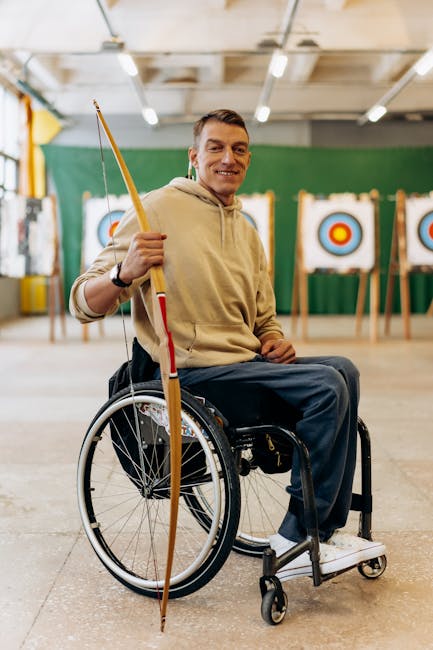10 Practical Tips for Reskilling After a Significant Injury
Experiencing a significant injury can be life-altering, not just physically but also professionally. Whether you’re facing a career shift by necessity or choice, reskilling can open new doors and bring fresh opportunities. In this blog post, we’ll explore practical tips to help you navigate this transition with confidence and optimism. Let’s dive in! 🚀
Table of Contents
1. Embrace Change with a Positive Mindset 🌟
2. Assess Your Skills and Interests 📝
3. Set Realistic Goals 🎯
4. Explore Online Learning Platforms 📚
5. Seek Professional Guidance 🤝
6. Leverage Your Network 🌐
7. Gain Practical Experience 💼
8. Stay Updated with Industry Trends 🔍
9. Focus on Health and Well-being 🧘♀️
10. Celebrate Small Wins 🎉
1. Embrace Change with a Positive Mindset 🌟
The first step on your reskilling journey is to embrace change with a positive outlook. It’s normal to feel apprehensive, but remember that every end is a new beginning. Keep reminding yourself that this is an opportunity to grow and learn.
2. Assess Your Skills and Interests 📝
Take stock of your current skills and reflect on what you enjoy doing. This self-assessment will help you identify areas where you can excel and contribute meaningfully. Consider taking online personality tests or career assessments for deeper insights.
3. Set Realistic Goals 🎯
Establish clear, achievable goals to guide your reskilling efforts. Break down larger goals into smaller, manageable tasks to avoid feeling overwhelmed. Remember, progress is progress, no matter how small!
4. Explore Online Learning Platforms 📚
The internet is a treasure trove of knowledge! Platforms like Coursera, Udemy, and LinkedIn Learning offer a wide range of courses that can help you gain new skills. Choose courses that align with your interests and career aspirations.
5. Seek Professional Guidance 🤝
Don’t hesitate to reach out to career counselors or mentors for advice. They can provide valuable insights and help you navigate your career transition. Consider joining support groups or forums where you can connect with others in similar situations.
6. Leverage Your Network 🌐
Your network can be a powerful resource during this time. Reach out to former colleagues, friends, and family to explore potential opportunities. Networking can open doors to new roles and provide support and encouragement.
7. Gain Practical Experience 💼
Consider volunteering, internships, or part-time roles to gain practical experience in your new field. This hands-on approach will help you apply what you’ve learned and build confidence.
8. Stay Updated with Industry Trends 🔍
Keep an eye on industry trends and developments to stay relevant. Subscribe to newsletters, follow industry leaders on social media, and attend webinars or workshops to keep your skills sharp and updated.
9. Focus on Health and Well-being 🧘♀️
Reskilling can be demanding, so it’s essential to take care of your health. Incorporate regular exercise, a balanced diet, and mindfulness practices into your routine. A healthy body and mind are the foundations of success.
10. Celebrate Small Wins 🎉
Recognize and celebrate your progress along the way. Every skill you acquire and every milestone you reach is a step towards your new career. Celebrating these small victories will keep you motivated and focused.
Conclusion
Reskilling after a significant injury can be challenging, but it’s also an opportunity to reinvent yourself and embark on a fulfilling new career path. By following these practical tips, you can navigate this journey with resilience and optimism. Remember, the key is to stay positive, keep learning, and never give up on your dreams. You’ve got this! 💪
FAQ
Q1: How long does it typically take to reskill?
A: The timeline varies for everyone and depends on the complexity of the skills being acquired. It can take anywhere from a few months to a couple of years.
Q2: What if I don’t know where to start?
A: Begin by assessing your current skills and interests, then explore online courses or seek guidance from a career counselor to help you identify a suitable path.
Q3: Can I reskill while working a part-time job?
A: Absolutely! Many people balance reskilling with part-time work. It requires good time management, but it’s entirely doable.
Q4: Are there free resources available for reskilling?
A: Yes, many online platforms offer free courses, and there are numerous free resources like blogs, podcasts, and YouTube channels dedicated to learning new skills.
Q5: How do I stay motivated during the reskilling process?
A: Set small, achievable goals, take breaks when needed, and celebrate your progress to maintain motivation and avoid burnout.

